
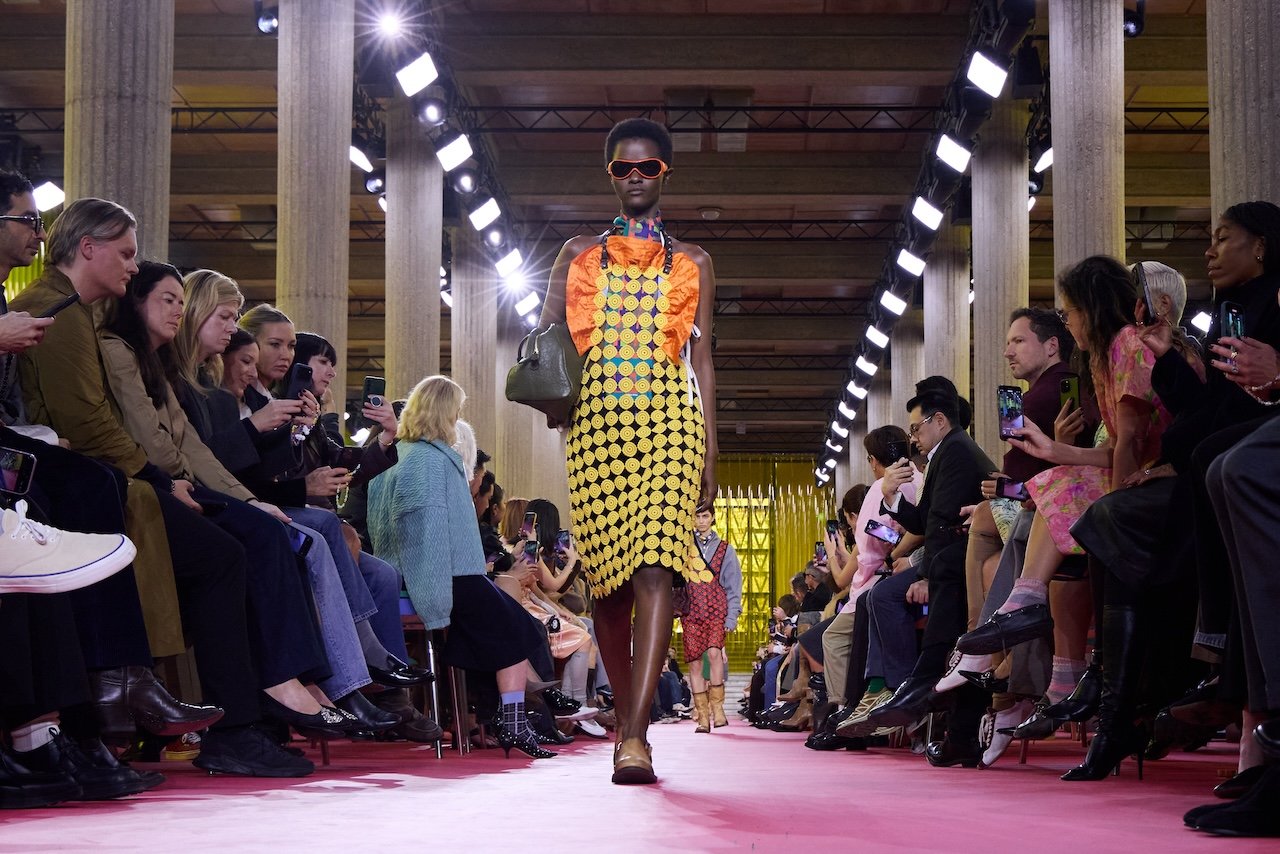
At Paris Fashion Week, Miuccia Prada did something audacious at Miu Miu: she moved the apron — fashion’s most domestic signifier — front and center. The Spring/Summer 2026 collection treats it not as a prop, but as a thesis: work, care, protection, and visibility belong on the runway.
A Garment Reclaimed
The brand’s own notes frame the apron as a universal symbol of work — a garment that can be both utilitarian and decorative, humble and exalted. In other words, a piece that holds contradictions the way real life does.
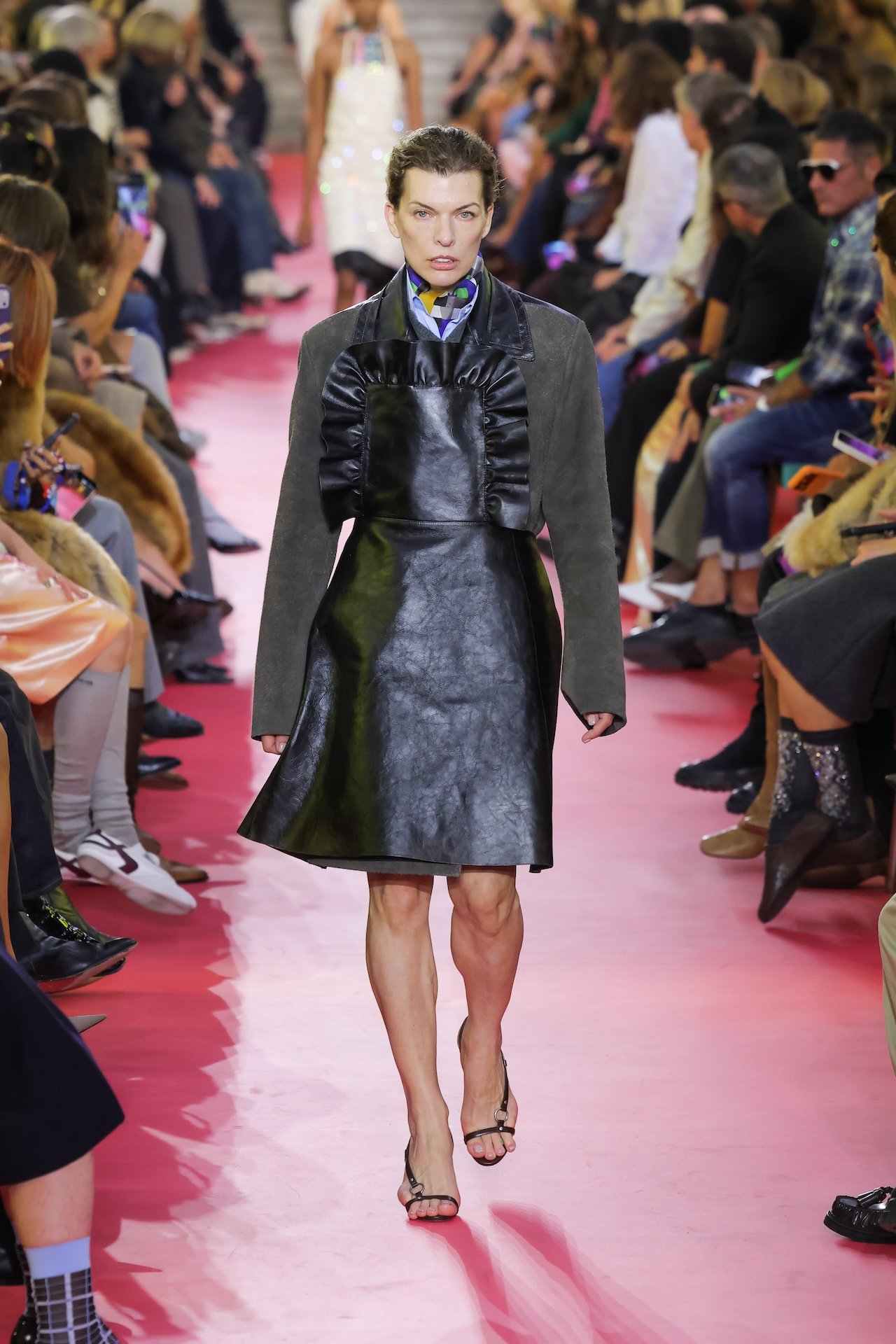
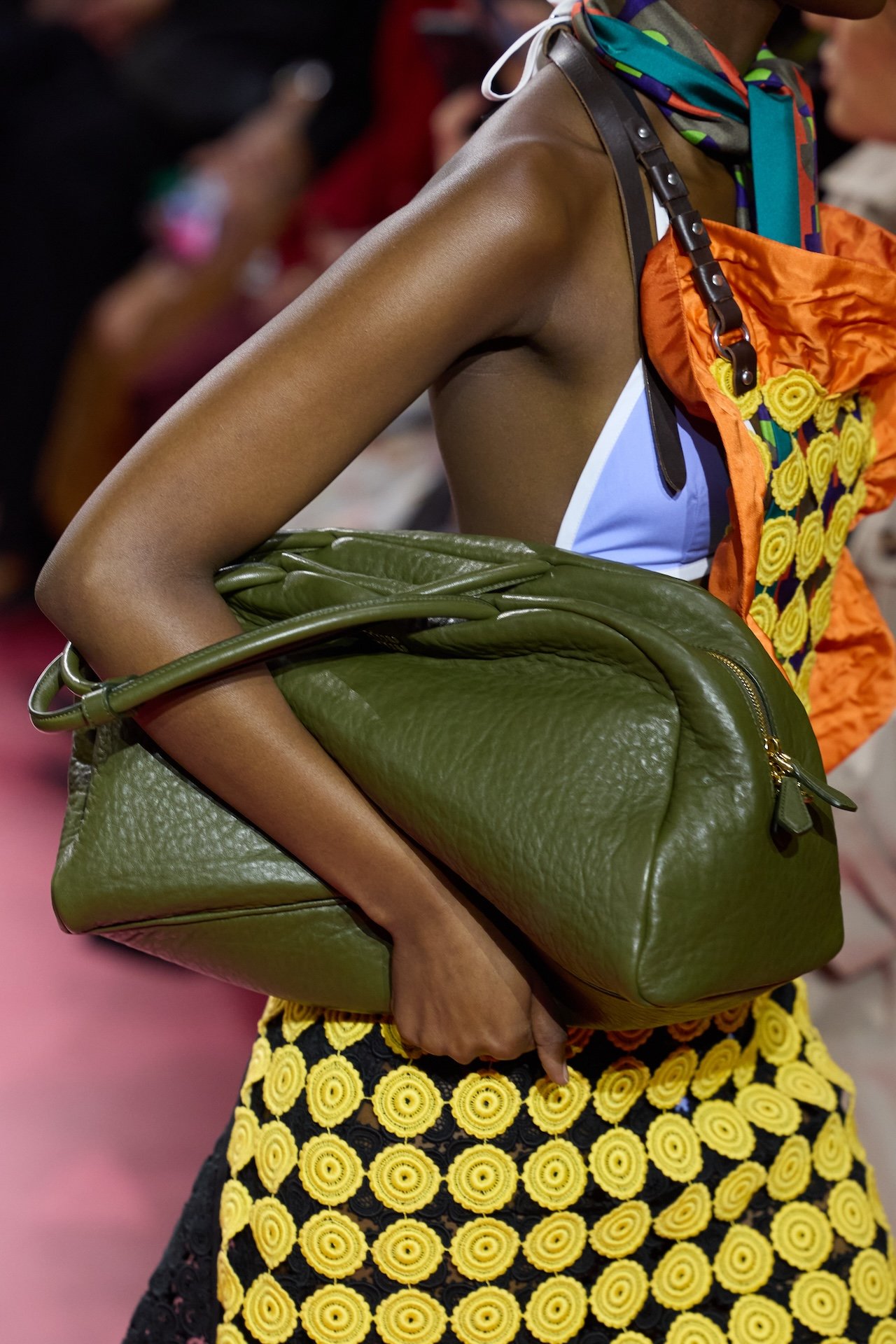
On the runway, those contradictions multiplied. Aprons appeared in crisp cotton and sturdy canvas, then in glossy leather and pretty crochet; some were bejeweled, some rugged, many layered with mischief over bikinis, barn jackets, or prim shirting. A run of floral pinafore-style looks nodded to domestic nostalgia, only to undercut it with proportion play and off-kilter styling.
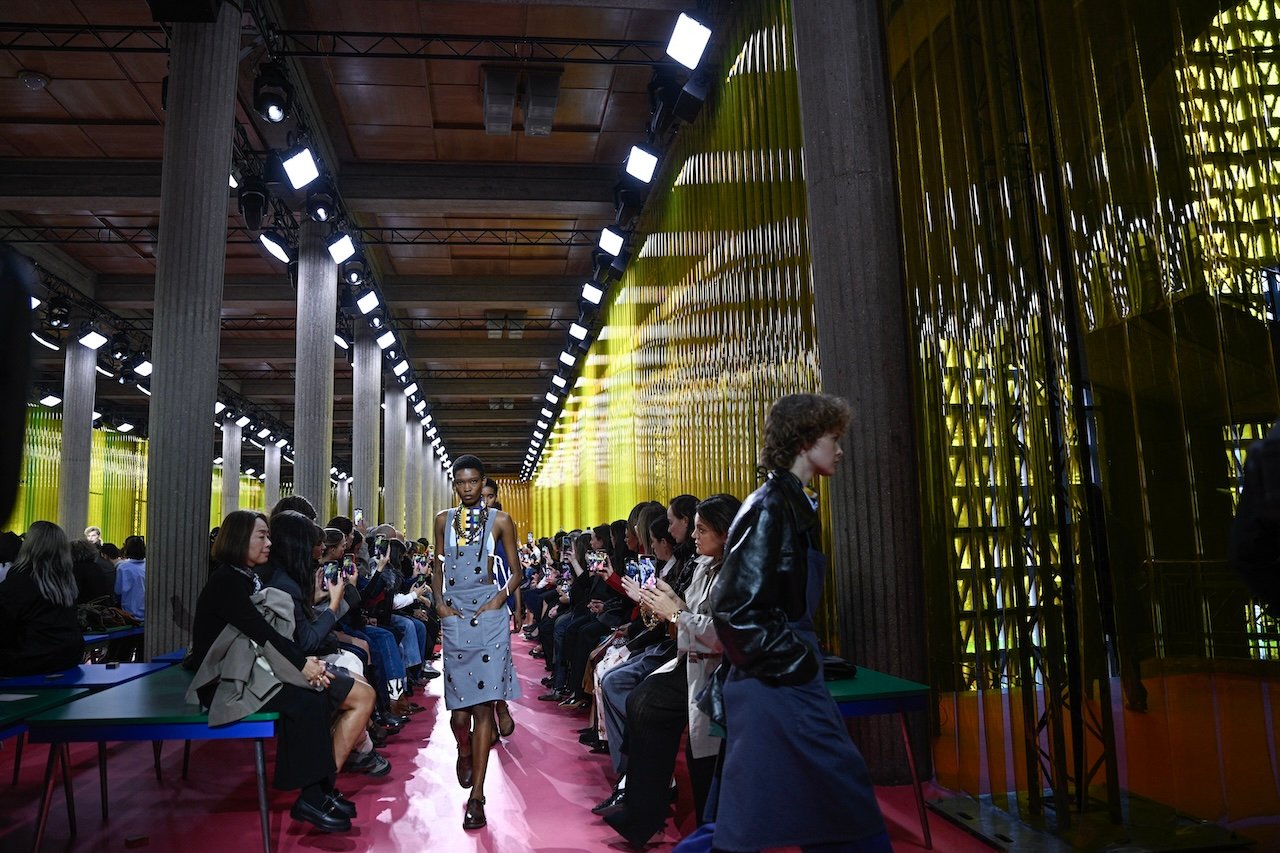
Even the set design reinforced the point: cafeteria-style tables and fluorescent lighting evoked a workroom reimagined, elevating the everyday into art. It was less fantasy, more recognition.
The Subversion of Domesticity
Why the apron — and why now? Prada has long been fascinated by uniforms and the quiet power of the ordinary. She’s described the apron as a symbol of women’s effort and endurance — of protection and care. That subtext gave the collection both its charge and its tenderness.
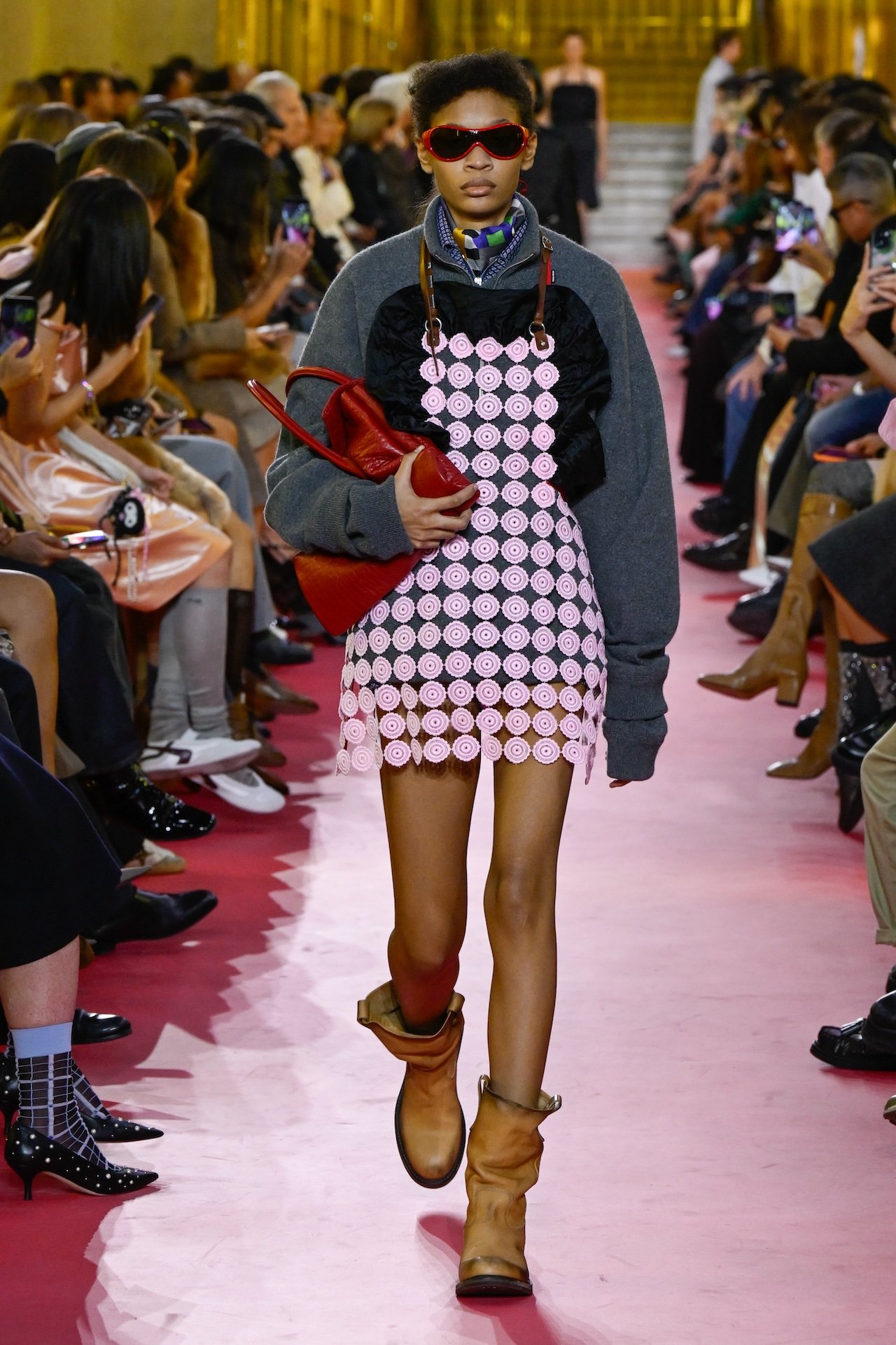
This was not about prettiness, but presence. The apron, historically coded as “invisible,” became a form of armor. Miu Miu’s styling — layered, undone, tactile — suggested both vulnerability and defiance.
A Tradwife Rebellion
In the age of TikTok’s “tradwife” aesthetic, where homemaking is romanticized into a digital fantasy, Miu Miu’s aprons felt like a rebuttal. Rather than indulge in nostalgia, Prada turned the symbol inside out. The apron became an emblem of agency, not submission — an acknowledgment of real labor and real women rather than a filtered ideal.
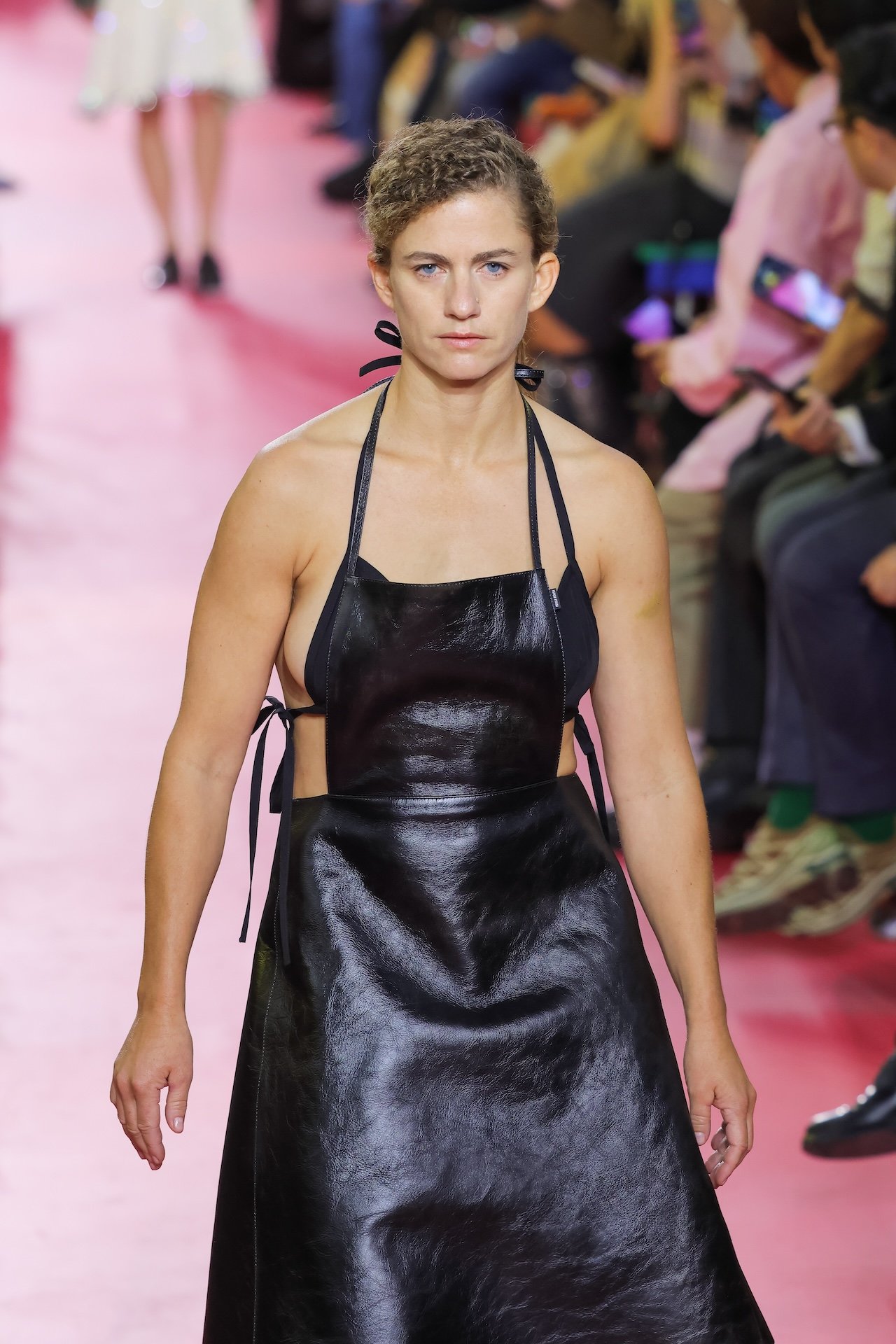
Each look underscored that tension: a leather apron tied over swimwear; a floral version trimmed with industrial buckles; prim ties offset by oversized pockets. It was clever, cerebral, and deeply Miu Miu — an intellectual exercise disguised as a uniform.
Fashion as Recognition
In a season dominated by spectacle, this was a quieter, sharper kind of luxury: the luxury of acknowledgment. By spotlighting the apron, Miu Miu brought visibility to the unseen scaffolding of daily life — the invisible work that sustains everything else.
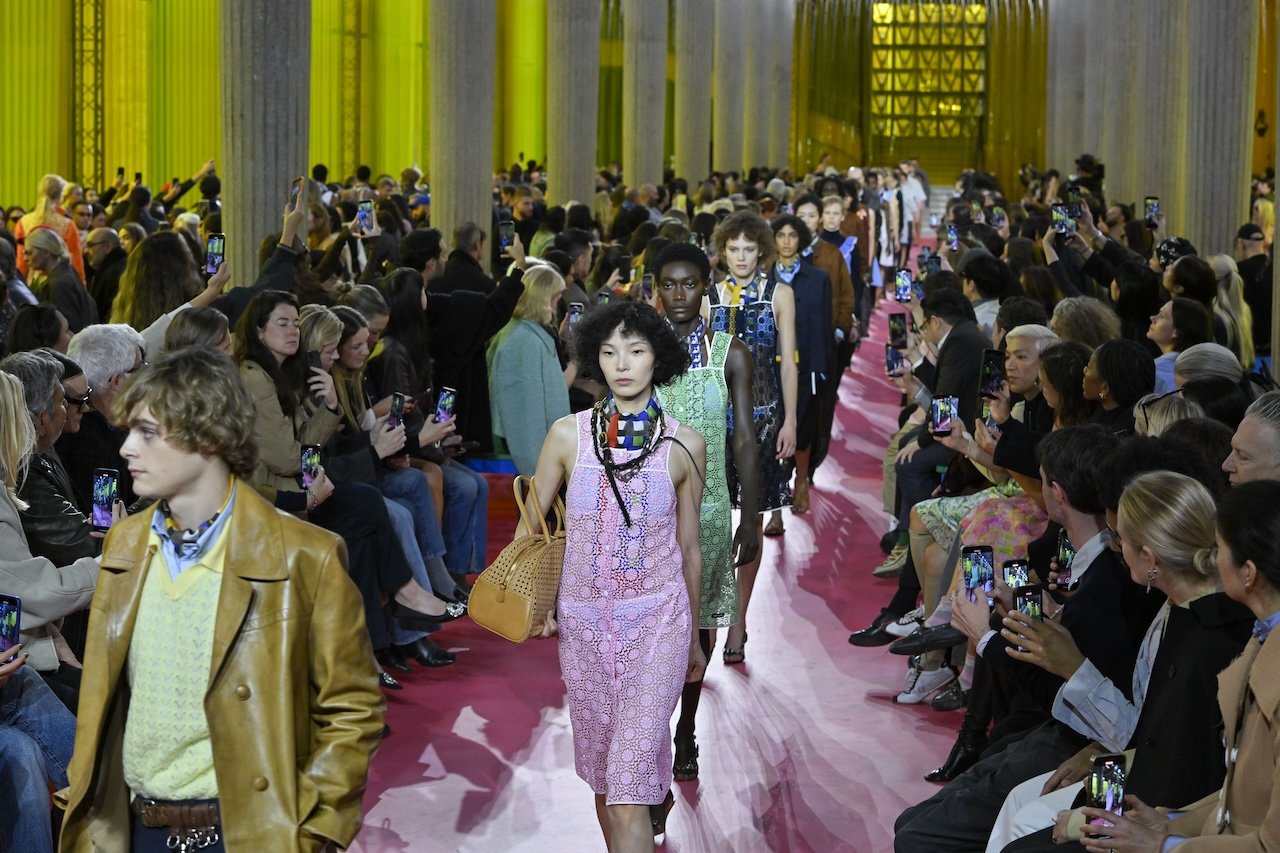
Fashion can’t resolve the inequalities it references, but it can force them into view. And that’s exactly what Prada did at Paris Fashion Week. The apron, once confined to kitchens and workshops, now occupies the catwalk — and with it, the conversation.
Because sometimes the most radical thing a woman can wear isn’t fantasy. It’s truth.














